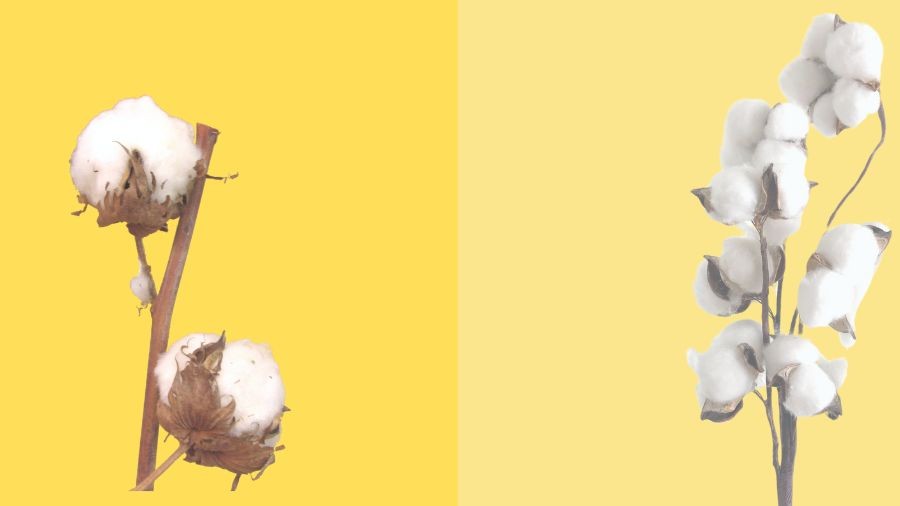Organic Cotton Fabric Suppliers See Growing Demand Amid Sustainability Trends

The global textile industry is shifting toward sustainability. Organic cotton fabric suppliers are seeing a surge in demand. This change is driven by consumers seeking eco-friendly options, especially in fashion and home textiles. The popularity of organic cotton is growing as more companies strive to meet these preferences.
Organic cotton differs from conventional cotton in several ways. It is grown without synthetic pesticides or fertilizers. This helps protect the environment and reduces the chemical impact on water and soil. The farming process requires less water and energy, which appeals to environmentally conscious consumers. With these benefits, organic cotton is becoming a leading choice in the market.
Cotton yarn wholesale prices have been impacted by this demand increase. Organic cotton is generally more expensive than conventional cotton. Farmers use organic methods, which are more labor-intensive. The cost of organic pesticides and fertilizers also contributes to the higher price. As demand grows, the price of organic cotton yarn continues to rise. For manufacturers, keeping track of these changes in wholesale prices is key.
The textile supply chain has been adapting to the growing demand for organic cotton. Suppliers are working with farmers to ensure a steady supply. The rise in demand has also influenced bulk buying trends.
Organic cotton fabric by the yard is another growing trend. This option caters to smaller businesses, independent designers, and artisans. These buyers prefer to purchase fabric in smaller quantities for their custom-made products. By offering organic cotton fabric by the yard, suppliers are meeting the needs of a diverse market.
Bulk buying strategies have become more important as the demand for organic cotton grows. Large orders are becoming more common in industries like fashion. These industries need to balance sustainability with affordability. Buying cotton rolls at wholesale prices allows businesses to reduce costs. Bulk purchasing also helps companies maintain a consistent supply of fabric for their production needs.
Sustainability has become a key factor in the purchasing decisions of both businesses and consumers. Organic cotton fabric suppliers are in a strong position to meet these demands. The organic cotton market is expected to continue growing. Companies that embrace sustainability are likely to stay competitive in this evolving market.
As demand for organic cotton rises, some challenges have emerged. Maintaining a reliable supply can be difficult. Organic cotton farming is influenced by environmental factors like weather conditions and soil health. These factors affect the quality and yield of the cotton crop, which in turn impacts the supply chain. Suppliers are working closely with farmers to manage these challenges and ensure a steady supply.
Technology is playing an important role in supporting the organic cotton supply chain. Digital tools help suppliers track crop quality, monitor sustainability metrics, and manage logistics. This allows businesses to verify that their products meet organic standards. It also ensures transparency throughout the supply chain. By optimizing operations with technology, suppliers can reduce costs and improve efficiency.
The rise in demand for organic cotton is not limited to the fashion industry. The home textiles sector is also seeing an increase in demand for sustainable products. Organic cotton is used in bed linens, towels, and other household goods. These products are free from harmful chemicals, making them a healthier option for consumers. As more people seek out eco-friendly household items, the demand for organic cotton in this sector is expected to grow.
One of the main benefits of organic cotton is its environmental impact. It uses fewer resources and is kinder to the planet than conventional cotton. Consumers are becoming more aware of these benefits, and businesses are responding to this shift in priorities. This is driving the growth of the organic cotton market.
The future of the organic cotton industry looks promising. As more consumers prioritize sustainability, organic cotton fabric suppliers are set to benefit. However, there are still challenges to overcome. Organic cotton production is more expensive and can be less predictable than conventional cotton. But as technology improves and more suppliers invest in sustainable practices, these challenges may become easier to manage.
The increasing demand for organic cotton fabric is having a ripple effect throughout the textile industry. From bulk buying strategies to fluctuating wholesale prices, the market is evolving. Businesses that can adapt to these changes will likely succeed in this growing market. The focus on sustainability is reshaping the industry, and organic cotton fabric suppliers are at the forefront of this transformation.
